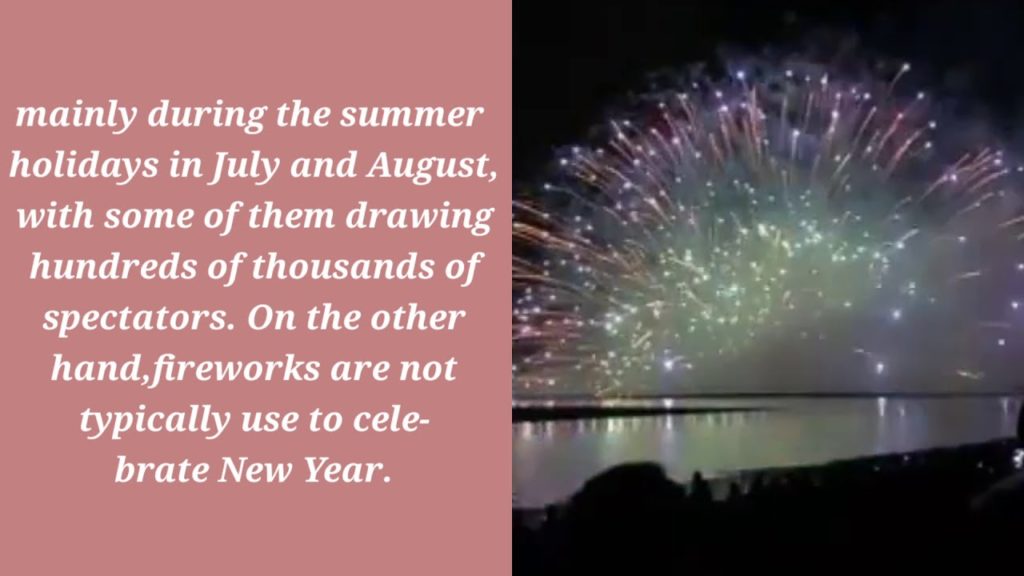BONFIRE NIGHT FIREWORKS |Japan Summer Festival |
Every year from July to August you will hear and see fireworks all around Japan. These summer fireworks are called hanabi. “Hana” means flower and “bi” means fire, so the word roughly translates to “fire flowers” or “flower-shaped fire”.
If you want to know how and why hanabi are so popular in Japan and how to enjoy the brilliant fireworks yourself, keep reading.
Firework History in Japan – Where It All Began
There are various theories and stories surrounding how and why fireworks, or hanabi, became popular in Japan. The story most experts agree on to be true is that Tokugawa Ieyasu, founder of the shogunate that ruled Japan between 1603 and 1867, took a liking to them after he received them as a present by a British representative of King James I and a Chinese merchant in August 1613.
As fireworks became more popular, the lords of Edo, today’s Tokyo, enjoyed gathering around the Sumida River to enjoy the fresh breeze near the river while watching them.
The first public firework display dates back to 1733 when fireworks were launched around the Sumida River to honor the souls of the one million people who had died the previous year due to extreme poverty as well as provide some entertainment to the general public. This became an annual summer event known as the Sumida River Firework Festival, which is held each summer to this day. Nowadays, many wards all over Japan host their own summer hanabi festival.
What Makes Japanese Fireworks So Unique?
In most places around the world, fireworks are launched to celebrate a special event. In Japan, they are mainly used to be enjoyed without any special reason. Many people see watching fireworks in the summer as being equivalent to watching cherry blossoms in spring.
They are regarded as something of fleeting beauty to be enjoyed with friends or loved ones. You eat, you drink and you talk while watching the flowers in the sky.
Another difference is the length of the firework display. Since the hanabi is the main event, it can last for up to 2 hours. The length depends on the location and the size of the event. Lesser known hanabi events tend to be shorter.
You can join most hanabi events free of charge and just bring your own sheet or blanket to sit on. However, if you don’t come hours before the display starts you might not find a place to sit. This is why paid seating is available and very popular.
Some services even provide tickets to view the big festivals from the rooftops of nearby buildings. Unfortunately, all these services need booking in advance and most are only available in Japanese.
What Should You Bring to a Fireworks Event?
Technically, you don’t have to bring anything. You can buy snacks, drinks, and plastic sheets at most convenience stores around the area. However, as mentioned before, the stores and food stalls tend to have long lines if there is a hanabi event nearby.
If you purely want to enjoy the fireworks, it is advised to bring snacks and drinks from home. If you are planning to sit down on the ground, you should bring a plastic sheet, towel or blanket.
What to Wear to a Fireworks Festival
There are no rules as to what you should wear at a hanabi event. Many people will wear a yukata (summer kimono), so if you have one, a hanabi or a summer festival is the perfect timing to wear it out.
Most Japanese people really appreciate visitors honoring their traditions and embracing them. You might even encounter an old Japanese woman adjusting the ribbon of your obi (kimono belt) and telling you how nice you look.
If you don’t want to wear a yukata, then light summer clothing is advised. Shorts and a T-shirt or a light dress would be the best choices. Either way, comfortable shoes are a must as you might have to walk a long way before you find a place to sit down. You should also bring a jacket or shawl. Summer weather in Japan is hot and humid but the nights can be much colder, especially if you are close to a river or the sea.
All About Yukata: Traditional Japanese Summer Kimono
Crowded Trains and Booked Out Hotels
If the hanabi event you want to visit is further away from where you stay, you should plan ahead. Many hotels around the area will be booked out if you don’t book months in advance.
If you travel by train, be aware that most trains will be overfilled after the fireworks. If time allows, it is advised to stay for a while after the firework display has finished and walk to a station a little bit further away to catch a train there instead.
The information presented in this article is based on the time it was written. Note that there may be changes in the merchandise, services, and prices that have occurred after this article was published. Please contact the facility or facilities in this article directly before visiting.
#SolandGirowKatsumata#Girow#Japan’sFireworks


AloJapan.com